AudioWise Inc. announces the launch of PGGB.IO – PGGB PCM Remastering (https://pggb.io), a cloud version of Remastero PGGB for those who want to audition PGGB technology but don’t have the available computer resources to run the full PGGB product. PGGB.IO’s simplified web-interface allows upload of music tracks, remastered according to the settings for the selected DAC, and email notification for download. For only dollars per track, users can do listening comparisons of PGGB remastered-vs-original sound quality. All PGGB.IO purchases up to $100 are credited toward purchase of the PGGB Mac or Windows desktop version.
PGGB is file-based PCM remastering using extremely long windowed Sinc filters (hundreds of millions of taps) for near perfect reconstruction accuracy and a more transparent sound. What this means is better depth and layering, improved resolution, a cleaner leading edge, and more accurate timbre. Remastero founder and the author of PGGB, who goes by the pseudonym Zaphod Beeblebrox, states “PGGB is a no compromise approach to digital remastering and advances the state of the art. It’s way beyond the capabilities of DACs and hardware upsamplers. When paired with a capable DAC, PGGB delivers on what Nyquist-Shannon showed was possible with sampled signals, i.e., near perfect reproduction of recorded music”.
PGGB.IO is hosted on Amazon EC2 servers with a global deployment footprint and high bandwidth storage networks for fast uploads and downloads. Dan Mance, owner of AudioWise, says that PGGB.IO was launched to expose PGGB technology to a wider audience: “the apex of audio experience is the magical sense of Qualia—the subjective feeling of being present with the artist in the recording venue. Music remastered with PGGB helps elevate all DACs so more music lovers can move closer toward that goal”. Dan adds: “PGGB.IO is just beginning. It will quickly evolve as affordable cloud infrastructure becomes more powerful to take advantage of the latest PGGB technology, performance and features.”
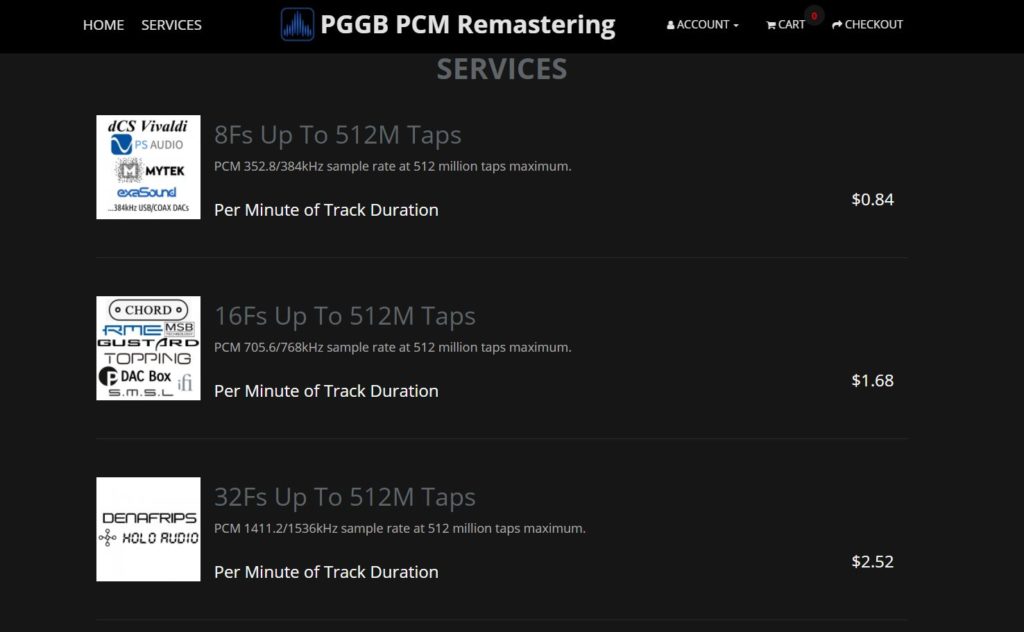
Here is a summary of the technical and sonic benefits of PGGB technology:
Ultra-Long Linear Phase Filters
Linear phase filters better maintain phase and timing of the original signal, resulting in improved imaging precision. Minimum phase filters, of the same filter length, offer better frequency domain performance and tonal accuracy. As filter length increases, linear phase filters gain a substantial advantage in subjective quality with a trade-off in pipeline delay. PGGB’s file-based approach is not compromised by any of this. Ultra-long windowed Sinc based linear filters stay true to the Nyquist-Shannon sampling theorem and offer the objective best in terms of realism and accuracy.
Optimized Windowed Filters
The ideal Sinc filter is infinitely long—perfect but impractical—so it’s approximated with a truncated windowing function. This reduces the ‘ripples’ in the frequency domain and allows for a steeper filter and better out of band rejection. PGGB uses an optimized proprietary window function that has an order of magnitude better time domain accuracy than standard windowing functions while delivering as good or better frequency domain performance. This results in near perfect reconstruction of music.
Ludicrous Number of Taps
PGGB builds a windowed filter with a number of taps (sinc filter coefficients) that’s the largest possible for the track’s output sample rate and is limited only by system memory. For PCM upsampled to 16Fs, a 6-minute track uses 250 million taps. For DSD 64 upsampled to 16Fs, a 6-minute track uses 1 billion taps. Compared with filter implementations found in even the highest end DACs, PGGB tap counts are in another league. This results in PCM playback of incomparable quality.
Dynamic Gain Adjustment
Inter-sample-overs refer to clipped audio samples created during reconstruction. These infrequent (but not rare) samples produce very unpleasant audible effects. DACs solve this by applying a fixed attenuation (typically ~4dB) for all music tracks. PGGB uses the preferred approach of detecting all inter-sample overs in the track and applying just enough attenuation to avoid clipping. This maintains music much closer to the original 0dB recorded volume.
High Frequency Noise Filter
Most high-resolution recordings (4FS or higher) contain a significant amount of residual noise (beyond 30kHz) as a result of noise shapers used during the original A/D conversion process. There is no music information contained in this noise, so it can be safely removed, and has a positive effect on sound quality. PGGB uses a single optimized filter that integrates both reconstruction and HF noise filtering for the most transparent sound.
Adaptive Noise Shaping
Unlike dithering, which simply masks the quantization noise, noise shaping pushes the noise out of the audible range. PGGB uses specially designed higher order noise shapers that are optimized for the selected output sample rate and bit depth. PGGB preserves and reproduces even the smallest of changes accurately, resulting in an extremely clean and analog-like reconstruction.
Perfect DSD to PCM
DSD mastered music has the ability to preserve much of the nuance and detail of the original analog, but DSD’s 1-bit modulation and noise shaping smears the transients and details over a large time window. DSD also has massive high frequency noise and a 6dB lower volume causing reduced dynamic range. PGGB reverses this process by incorporating millions or billions tap reconstruction to restore the transients and details – plus a single monolithic filter incorporates HF noise filtering and inter-sample-over detection to maximize DSD sound quality.
Endgame Your DAC
PGGB turns any capable DAC into an Endgame DAC. Use USB, I²S or Dual Coax (DX or AES/EBU) to input the highest resolution PCM that your DAC can handle. Bypassing the DACs upsampling stage will reduce the digital noise footprint for a more transparent presentation of PGGB’s remastered sound quality.
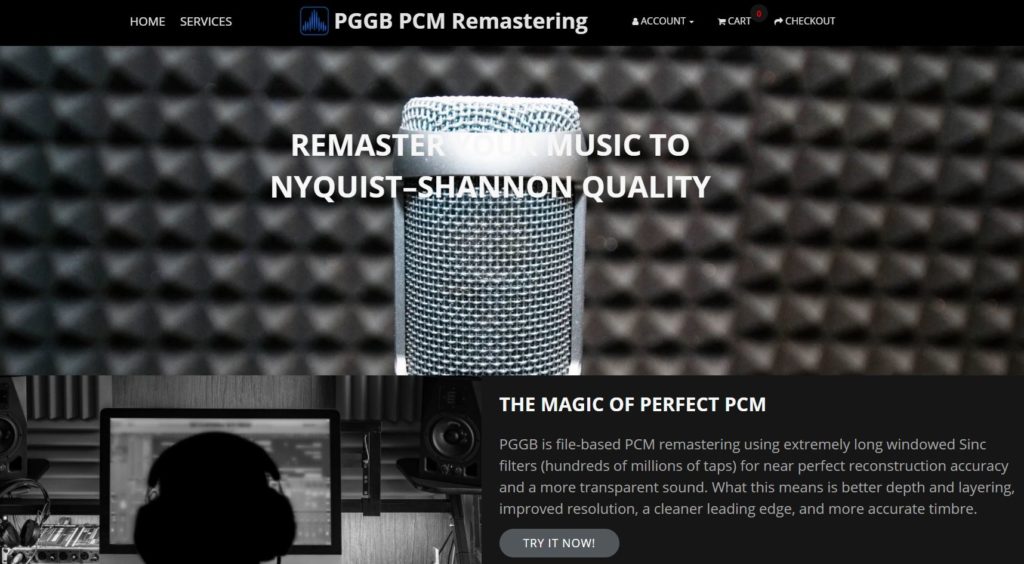
For more information, contact:
Dan Mance: dan@audiowise.ca.
AudioWise Inc. www.audiowise.ca
Zaphod Beeblebrox, zb.pggb@gmail.com
Remastero www.remastero.com

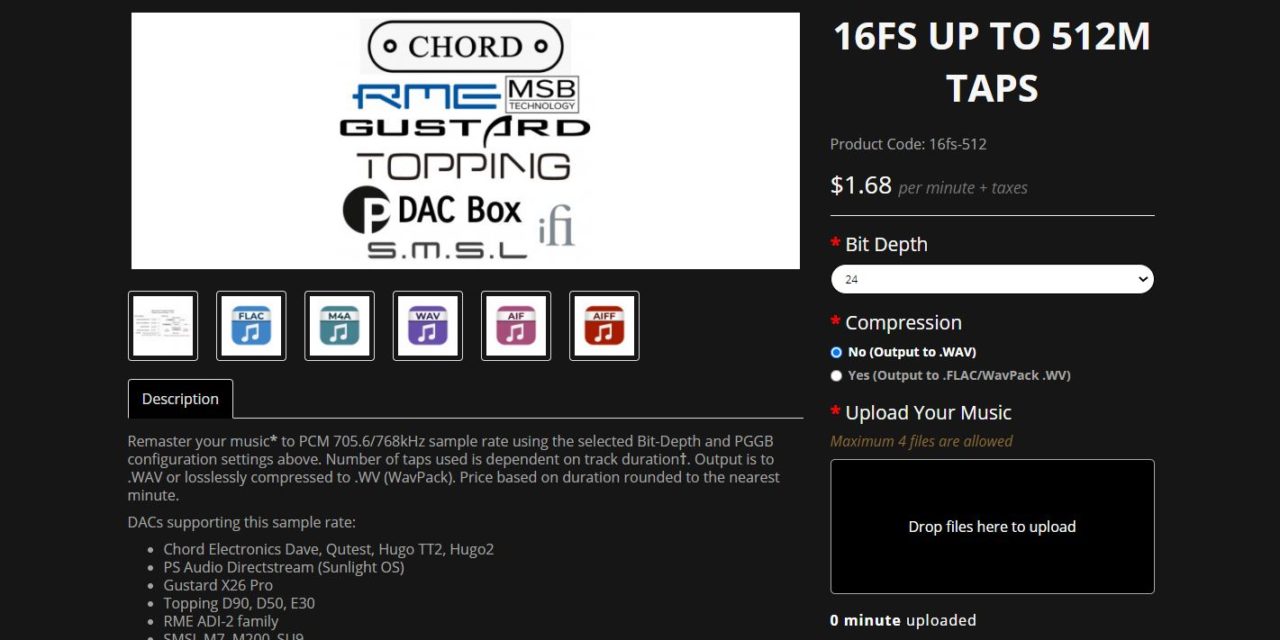


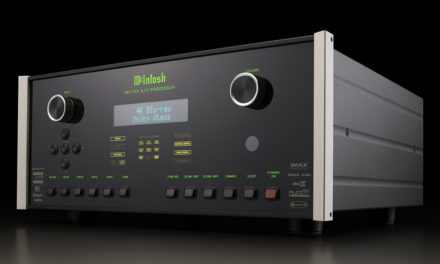
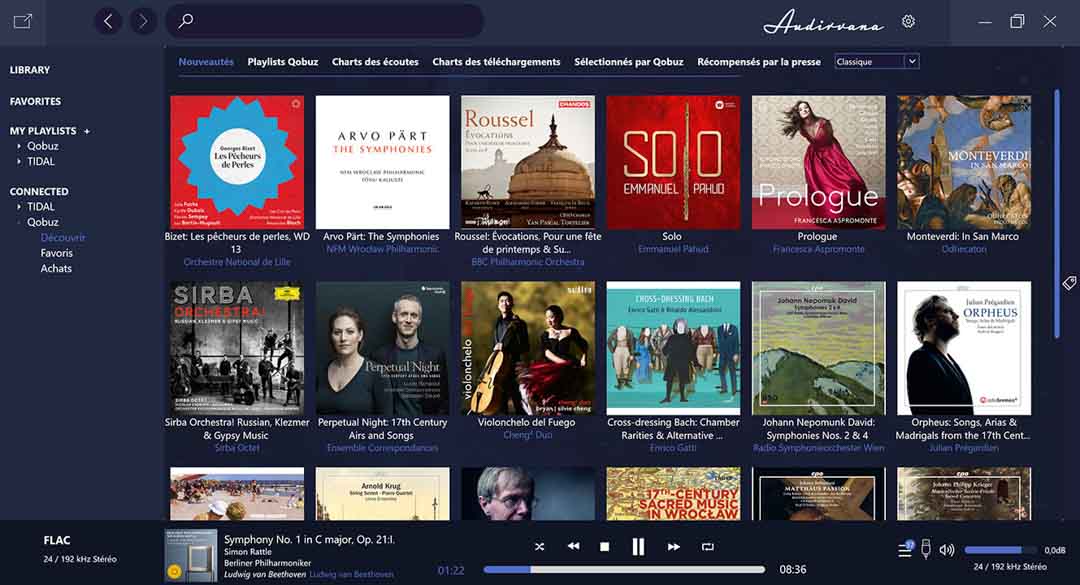

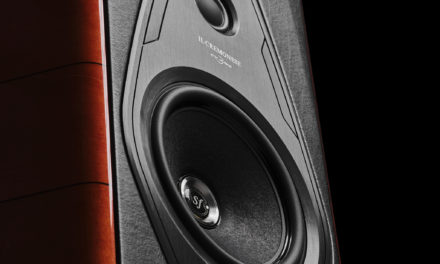

What is the level of improvement over MScaler?